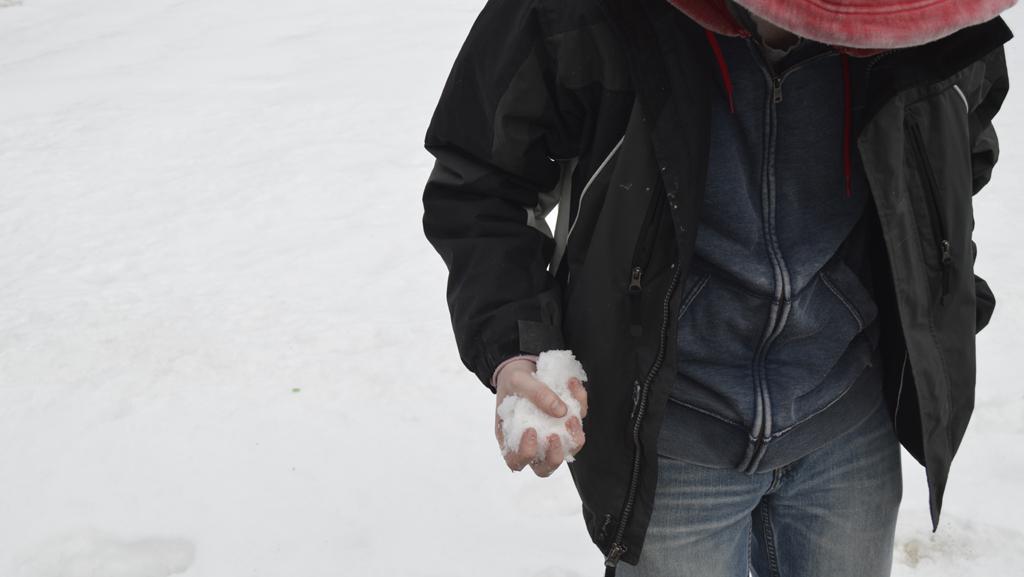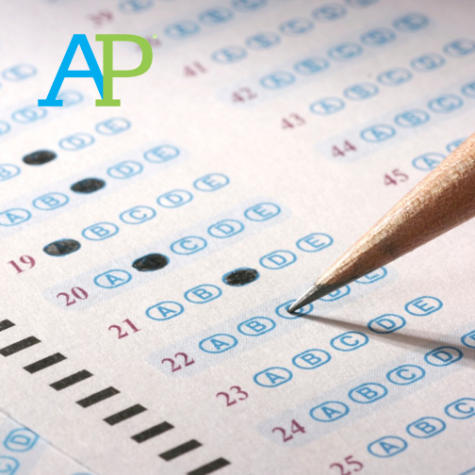Snow days bring students together
An Adams senior wields a ball of ice from the recent arctic blasts.
Coming off the back of the most monumental winter seasons in years, most students are not expecting any more snow days any time soon.
With an unprecedented three days off due to snow, ice, and dangerously low temperatures after winter break and three more in mid-January due to legendarily low temperatures, the RCS schedule has been skewed more than it has in a long while, and has left many students very, very happy with the winter’s progress. But what is it that gets us so hyped up for snow days? Is it simply the delightful prospect of a rest from school for a day, or something more that gets us so excited? The latter answer seems to be more fitting.
The truth is, the spread of social media in today’s digital age has allowed snow days to rise above 24 hours of relief into something much more special- a way for students to join together in hope, prediction, and excitement in celebration of the complete disdain for work that busy school schedules give them.
Whenever there is even a slither of a chance of a snowstorm mentioned by someone on news reports, by word-of-mouth, or online, students (and sometimes even teachers) instantly begin gossiping, hypothesizing, and re-tweeting the possibility. At the beginning of the winter, when a snow day has yet to occur, this is overwhelmingly true.
On the last Sunday of winter break, with the legendary super-storm Hercules looming over Michigan, social media was especially anxious, with many students hoping out loud for an extension to a winter break which had left many uninterested in returning to a laborious school schedule any time soon. And who’s to blame them? The only thing better than 16 days of sleeping, pajama-wearing, mind-resting relaxation is 17 (or in this case, 19) days of the sort.
A victory for the students
Relaxation isn’t the only reason students are excited for snow days, however. In a way, snow days represent a sort of victory for the student body, as if the school board has had to concede something to the students. This is especially relevant to RCS students, who are known to complain about the seeming unwillingness of the board to announce the snow day until literally every other district has closed, and to risk school if the roads are relatively safe.
Of course, these accusations are unfounded and unfair; the decision for a snow day is (mostly) down to the Superintendent, not the school board, and is collaborated on among multiple districts. It’s not as if they’d keep school open if it would be a danger to the safety of students and faculty, and their willingness to remain open in spite of questionable weather is founded on test drives around the area to test the actual safety. When school remains open, it’s most likely the best decision that could have been made.
Still, teens love to complain, and a predicted snow day not granted is often a cause for grumpiness and, more often than not, unfinished homework from students who took the risk. Teens seem to be wired to have mistrust for authority, as they should, and so winning a snow day feels almost like a transfer of power from the system’s want to educate to our want to stay in bed, take a break, and enjoy ourselves. It’s unlikely the student body has any influence when it comes to instituting snow days, but it’s never a bad thing to feel efficacy, something which the openness of websites such as Facebook and Twitter allows.
The Twitter “Problem”
Twitter, especially, is often populated by a maelstrom of disdain and complaint when chances of a snow day are thrown about, often leading to aggravation against the school district and, sometimes, against specific people. Hashtags such as #CloseRCS are viciously popular on Twitter, with kids blowing off their homework (and literally everyone does it from what it seems) in favor of spreading the word of a possible snow day or, perhaps, complaining against the school system for keeping school open or delaying a snow day announcement until late at night.
The first impression this kind of tweet makes when viewed by a parent or educator is probably one of apprehension or shock, especially with scandalous Twitter wars such as those against University of Illinois Chancellor Phyllis M. Wise in late January which boiled down to racism and sexism within hours after she announced school would be open on the apocalyptically cold day of Monday, January 27. With the totally uncensored medium of Twitter allowing users to post whatever they want and a society that encourages free speech and independence, students are quick to complain to their friends and followers about snow days with only social rules and fear censoring them.
Typical snow day rage tweets range from the simple and harmless “I wish they would call a snow day” to a good-humored satirical remark about the school district to a more questionable expletive-laden comment made directly to a specific person or group, generally the superintendent. On any night before a cold or snowy day many tweets of these varieties are to be expected, though the most offensive ones are generally reserved for those days when the district has waited the longest to call off or, even worse, have announced that, against all potential “dangers”, school will remain open.
“The Prediction”
Snow day hype on Twitter isn’t always a profane, hate-fueled stampede. One student who seems to have an overwhelming amount of snow day efficacy without causing major controversy is senior Austin Rogers, whose perfect track record of Twitter snow day predictions has led to his followers crowning him “The Weatherman”. The prime example of the ability of snow day hype to bring students together, Rogers’ 5:40PM prediction of a snow day for Wednesday, January 8 has achieved an impressive 125 retweets and 317 favorites as of February 5, 2014, more users favoring the post than most Adams Twitter users have as followers. Rogers’ influence is seen throughout Oakland County, and he has become the foremost authority on snow days for the RCS social media community.
“I do it for the fans,” said Rogers, proving the ability of the snow day hype to promote unity under the single cause of closing school.
Rogers isn’t the only predictor around, however. Posts can be seen littering Facebook and Twitter feeds practically every time there is a snow storm, with predictions running almost as rampant for students as guesses for Oscar winners are for movie critics.
Popular sources of evidence are the websites snowdaycalculator.com and snowdaypredictor.com, which both provide interestingly different predictions for snow days, though both work on a 100% scale; “Calculator” seems less liberal but cannot easily predict ice days, whereas “Predictor” seems to be more extreme with its decision. Neither source is recommended for accuracy, though they both provide sources of entertaining speculation to distract students from the pessimism linked to tons of homework and sleep deprivation.
The predictions of snow days, in short, allow students to band together in optimism, sometimes with excellent results and other times with horrible ones, such as homework assignments not finished due to an expected prediction. This is never a good thing in theory, but it is also not a bad thing to be part of the hype. Torturous winter weather does have its benefits, after all- it brings together students in a celebration of their need for relaxation, want for efficacy, and enjoyment of speculation. Now let’s hope for one more storm before the winter is over.











